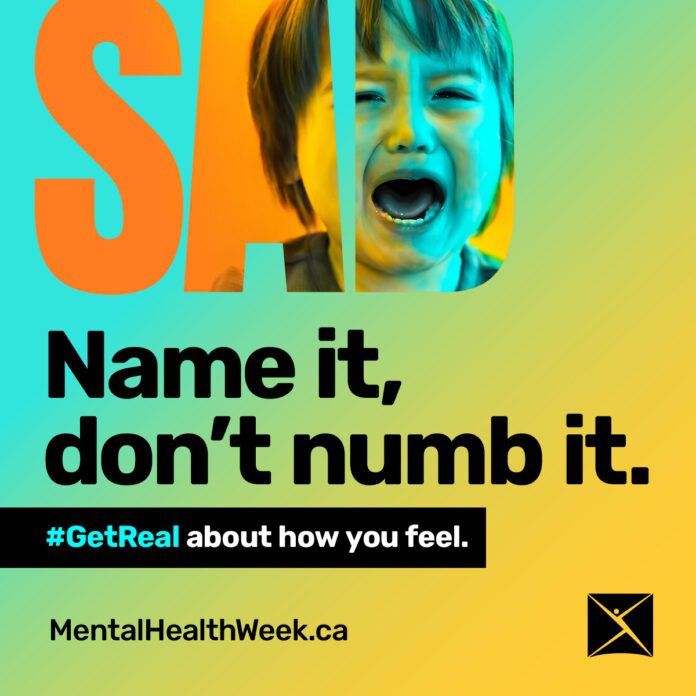Whether it’s happy, sad, anger or surprised, The Upper Canada District School Board is exploring more ways to #GetReal. The campaign was launched in recognition of Canadian Mental Health Week which is celebrated the first week of May. The theme is focused on mental health awareness.
“Recognizing what influences our emotions, discovering how our emotions affect the way we think or act, and what to do when our emotional responses overwhelm us, are things we teach in our schools every day,” says Dr. Alison Inglis, Chief Psychologist with the Upper Canada District School Board.
As staff, students and families continue to navigate through the pandemic, Inglis reminds us that pandemic fatigue brings with it a lot of uncomfortable or difficult emotions for many people. “Understandably so, difficult emotions may be expected or reasonable given the circumstances, but they are still draining. This is why it’s important to understand how to be kind to ourselves and make wellness a priority,” she says.
Establishing or maintaining self-care practices will help to weather difficult or uncomfortable emotions and protect overall well-being. With that, she states, each individual defines self-care in different ways and it’s important to understand what self-care means for each person.
“Self-care essentially means doing things that fill your cup, and knowing what empties it. So, self-care for one person may mean going for a run while it may mean coffee and a video call with a friend for another,” she explains, adding that listing out your self-care practices is key. “Identifying your self-care strategies is an effective way to understand what’s important to you, it helps you commit, and makes mental health a priority in your life.”
Here are some ideas for self-care:
- Create and maintain a daily routine. Having regular and predictable activities in place helps maintain a sense of normalcy;
- Get enough sleep each night;
- Make a meal plan for the week to ensure you eat healthy foods;
- Identify what exercise you like doing and integrate active movement into your daily routine; and
- Give yourself a set time to shut down your phone each night.
Inglis adds that while self-care is important, it’s vital to know and accept it’s okay to feel worried, irritable, fearful, or to have less focus some days. These are normal reactions to challenging times. She adds that it’s also okay to reach out for help from community agencies if you’re experiencing significant distress for long periods that interferes with your ability to function. Everyone needs a little help from time to time, so reach out if you need to. We offer information about mental health and community supports, online and through social media,” says Inglis. “You can also reach out to your local school.”
Information about student well-being and community supports for UCDSB families can be found on the UCDSB website and in our Mental Health & Wellness Virtual Library.
Learn more about mental health from the Canadian Mental Health Association, Children’s Mental Health Ontario, and School Mental Health Ontario websites. Children and youth can also visit the Kids Help Phone.




